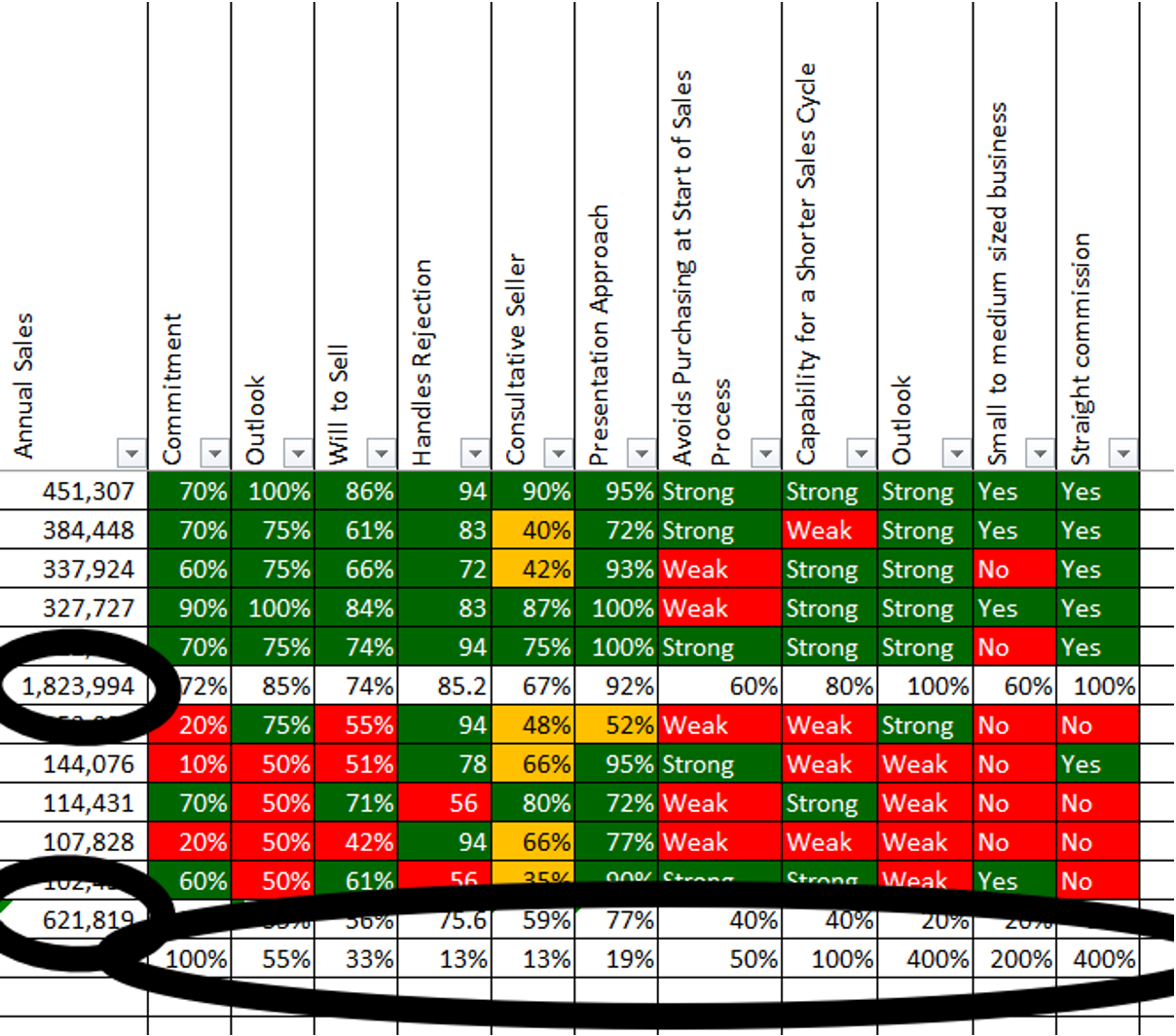We’ve been talking to, teaching, and coaching sales organizations for 30 years. We’ve been through every economic, political, and social uptick and downturn that you’ve been through. As a result, we’ve heard every reason for success and failure. The one true constant throughout those years and swings in environment is that there are always a small group of salespeople that succeed regardless of what is going on around them. What is their secret key to success?
You can’t control if someone will be there when you call, if they will return your email, or if someone will give you a business card and tell you to call them. You can control if you call, how you present yourself, and if your message is captivating and engaging. You control your willingness keep calling and following up, you control if YOU PERSONALLY provide something to the marketplace that is needed and wanted by many. You can control if you ask for a business card. You can control asking a new suspect if they are sure that they want you to call them, or if they are just being polite.
You can’t control if someone tells you to send them something just so they can get you off the phone, but you can control asking them if they are just trying to get you off the phone. You can ask them "Once I send it, then what?" You can control setting up a specific time to follow-up and ask if there is any reason that they wouldn't take your call. Also, you can ask them how many times should you attempt to follow up with them.
You can’t control if they have a strong relationship with their current provider, but you do control asking about the current relationship and the willingness and ability to end that relationship when you bring something to the table that is better than what they are getting today.
You can’t control if the incumbent or new competitor is looking to capture market share by being the low-cost provider. You control telling prospects that you are not the low-cost provider, but your clients still choose to do business with you knowing full well they could save money. Why do you think they do that?
You cannot control prospects mis-representing or embellishing the truth. And I assure you that they will mis-represent or hide the truth about problems, capacity to invest time, money, and resources, and they will most certainly not be forthcoming about who has authority to make the final decision and how decisions will be made.
- You can control if you ask if the problem or opportunity is a have-to-fix, want-to-fix, or consider-fixing issue.
- You can control telling a prospect to let you know when the problem becomes a have-to-fix problem.
- You can control asking about where the money will come from if they don’t have a budget.
- You can control monetizing a problem or opportunity. You can control making sure the financial influencer is part of your discussions and you can control asking about who wins a tie.
You cannot control a prospect's decision-making criteria or priorities. You can control asking, aside from money, what are the other decision criteria and how would you prioritize them?
You cannot control what the incumbent will say and do, to discredit you. You control if you ask your prospect what they will do when the incumbent begs to keep the business, or changes their pricing to match yours and you can ask, why did it take me getting involved to get your current provider to do what they should have been doing all along?
You cannot control the environment you will be presenting in when you get ready to make your pitch. You can control the following:
- Making sure you’ve agreed to a scope of work before presenting
- Explaining that all the influencers need to weigh in before you present if they are not going to be in the presentation
- Sending an as-we-agreed-to letter to your prospect after you’ve completed all of your qualifying meetings and the next step in the process is to present a formal proposal
- Making a phone call to verify that everything you put into the as-we-agreed-to letter is accurate and the decision time frame still holds
- Making sure that your prospect understands that at the end of your presentation you will ask three questions:
- Did they feel that based on what you presented, you understood the nature of the problem they want to fix?
- Do they believe that you can fix the problem?
- Do they want your help.
You control all of these components of the presentation stage.
But perhaps the single most important thing you control is your attitude. It is your attitude that determines your beliefs and those beliefs are what drive your actions. You can control if you believe you have control.
With regards to selling and closing deals, my experience is that the most highly successful salespeople exhibit great control to move on when they don't get a deal. They have the uncanny ability to say and think, some will, some won’t, so what, NEXT.
That is the ultimate control of your destiny.
Thanks for your time.






